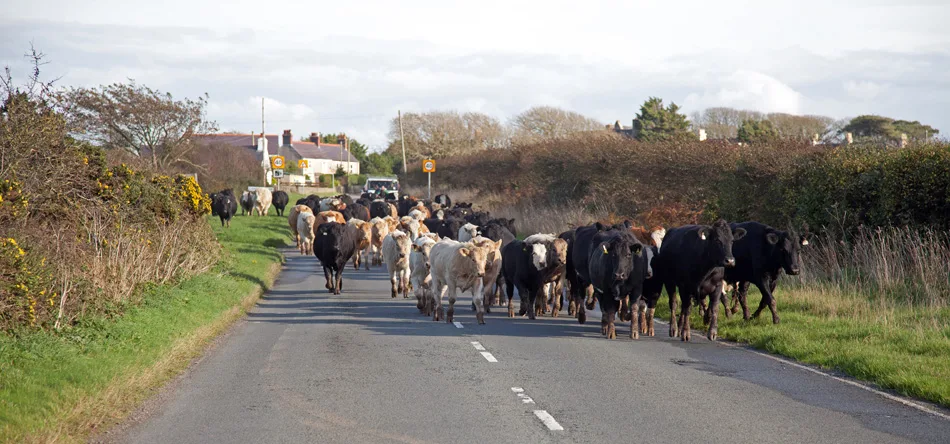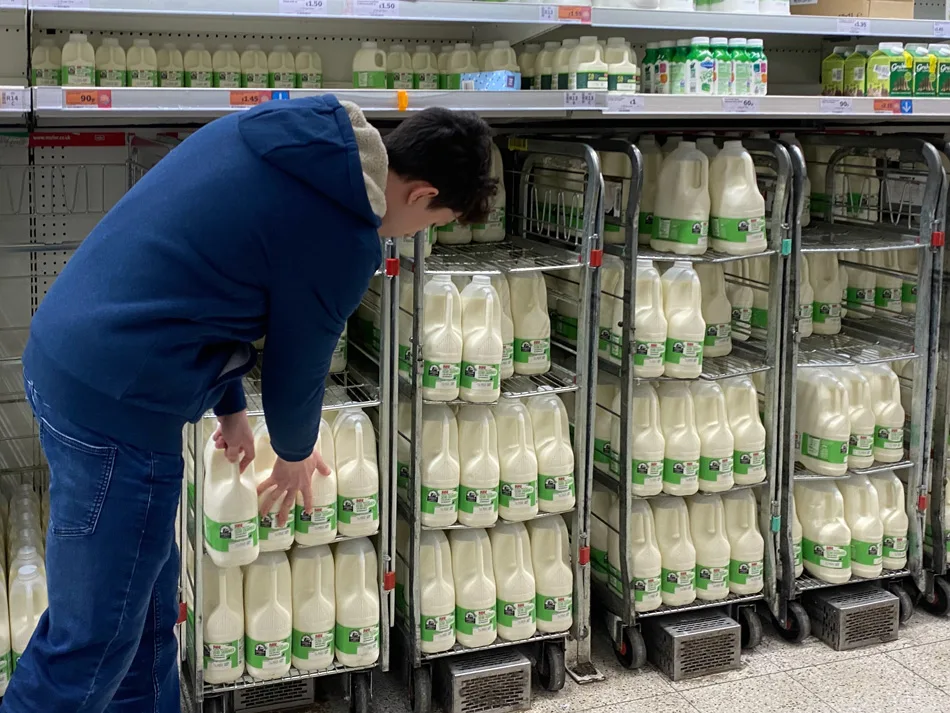Milk prices sliding, costs climbing, dairy farmers running out of room to manoeuvre – Andrew Livingston asks what went wrong for British milk

It’s a vivid memory for me – making sure you’re out the door for work before the Wallbridges let their cows cross the road, heading back to the field after milking. A (slow) freight train of black and white carriages, with the odd one stopping to low at you: ‘Don’t rush me!’
It’s a familiar scene across Dorset, Devon and Somerset – the sound of early milking blending with the dawn chorus, 365 days a year.
The cows don’t know it, but behind those timeless scenes, Britain’s dairy farmers are once again facing a crisis of confidence. Milk prices are sliding, costs refuse to budge, and farmers are being asked to weather yet another storm.
This week came the news that farmgate prices will fall again. By the end of the year, many farmers expect to receive under 40p per litre – around 6p less than before. That may not sound much, but for a typical herd it means tens of thousands of pounds wiped off annual income.
The final straw
The fall is part of a wider pattern. Milk deliveries are up six per cent year on year, while global prices for butter, cream and cheese are weakening. It’s a perfect squeeze – more milk chasing lower margins.
Here in the South West, the heartland of British dairy industry – that squeeze is being felt most acutely. Dorset, Somerset and Devon remain home to hundreds of family-run farms that supply the nation’s processors and retailers. When prices fall by just a few pence per litre, small producers are pushed to the brink. Since 2015 the UK has lost nearly a third of its dairy farms – from 12,643 to 8,738. Many parlours that once echoed with the clatter of buckets now stand silent, victims of an industry where supermarkets set the shelf price and farmers carry the risk. For those already grappling with this year’s drought, rising input costs, cuts to basic payments and the looming Family Farm Tax, this feels like the final straw.
Several MPs representing the milking counties have called for urgent reform. Yeovil’s Adam Dance warns that ‘farmers are at breaking point’ – and he’s right. He is pressing for a single, properly resourced regulator to replace the current split between the Groceries Code Adjudicator and the Agricultural Supply Chain Adjudicator – a system that he says is too weak to protect farmers. In Parliament, Sarah Dyke MP for Glastonbury and Somerton, has introduced a Dairy Farming and Dairy Products Bill. It aims to protect UK dairy farmers in trade negotiations, improve labelling for imported dairy products, and strengthen fair-dealing rules between farmers, processors and retailers.

A new deficit
For farmers here in Dorset, change can’t come soon enough. Most are working on knife-edge margins, with no buffer against sudden price cuts. A litre of milk might sell for £1.50 in the supermarket but after processing, transport and packaging costs, the person whose cows produced it gets less than half of that. In 2023 the UK exported 77,000 tonnes more dairy products than it imported. Last year, that turned into a deficit of 22,000 tonnes. So why, when we can produce the best milk in the world, are we closing farms and importing dairy from abroad?
The milk price conundrum isn’t new, but it’s growing more urgent. The government now faces a choice: continue with piecemeal fixes, or back the farmers who produce one of our most essential foods with fair contracts and proper protection.
A fair deal for dairy isn’t just about milk – it’s about the survival of our countryside, our food security, and a way of life that still defines the West Country.


